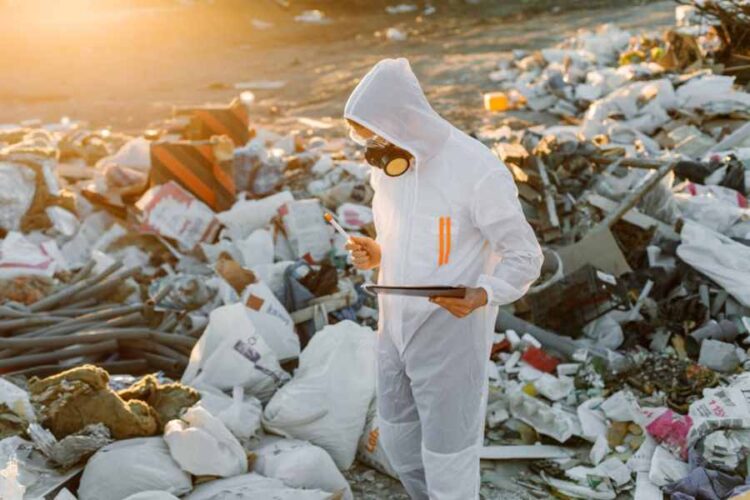Handling cleanups involving health risks requires strict adherence to legal standards. These regulations protect public safety, the environment, and the cleanup teams themselves.
But which ones matter most? OSHA enforces workplace safety, while environmental laws tackle contamination concerns. Both ensure safe processes are in place.
Standards aren’t just about compliance. They promote trust between professionals and those affected by sensitive incidents. Certified services meet these rules effectively with tailored methods.
Join us as we explore five crucial legal frameworks for health-related cleanups – your guide to staying compliant and prepared for any situation.
1. OSHA Regulations for Cleanups
When dealing with potentially infectious or unsafe material, OSHA’s guidelines are essential. They establish critical procedures to protect workers and the public during cleanups.
The Bloodborne Pathogens Standard requires safety measures when handling hazardous substances, including proper protective gear and training. Engineering controls like sharps disposal containers help reduce exposure risks.
Beyond personal protection, Hazard Communication Standards ensure workers know the dangers of chemicals used in cleanups through detailed labeling and accessible Safety Data Sheets.
Additionally, ongoing education is vital. OSHA mandates regular training updates for compliance. Implementing these protocols not only safeguards employees but also bolsters organizational reputation. That’s by showcasing commitment to health and safety regulations in challenging environments.
Understanding these standards equips you to manage risk effectively while maintaining legal integrity in cleanup operations.
2. Cleaner Certification and Professionalism Standards
Not just about any individual can effectively handle a health-based cleanup. It often requires specialized skills, training, and compliance with strict legal requirements to address the risks involved safely.
Take, for instance, cleaning a scene after a suicide incident. Emotional sensitivities aside, these environments frequently contain biohazards like blood or bodily fluids that could pose serious health risks if improperly handled.
Certified cleaners hold licenses verifying their expertise in such situations. These credentials ensure adherence to key legal standards like pathogen control protocols and proper hazardous waste disposal methods.
Moreover, professional suicide cleaners bring more than technical knowledge. They offer families peace of mind during an incredibly difficult time. Having their support means restoring spaces respectfully while prioritizing safety through trained, licensed service providers who understand both the regulations and humanity of their work.
3. Environmental Laws Governing Health-Based Cleanup
Protecting Mother Nature while managing health-based cleanups is a delicate balance. Every action, from handling chemicals to disposing of biohazards, must align with strict environmental regulations to avoid harm.
Consider our previous example – a cleanup after a suicide incident. Besides emotional weight, the process may involve bloodborne pathogens and chemicals that could impact local ecosystems if mishandled. Four key environmental laws play a vital role here:
- Resource Conservation and Recovery Act (RCRA): Regulates hazardous waste management to prevent pollution during disposal processes.
- Clean Water Act: Prohibits contaminating water bodies through improper chemical or biohazard runoff practices.
- Comprehensive Environmental Response Compensation Liability Act (CERCLA): Governs cleanup of hazardous substance releases in contaminated sites or emergencies.
- The Toxic Substances Control Act (TSCA): Monitors use and disposal methods for potentially harmful cleaning agents.
Compliance ensures every aspect of the process minimizes environmental risks effectively – preserving ecosystems while adhering to legal frameworks crucial for community safety and professional integrity alike.
4. Biohazard Waste Disposal Compliance
Now to the question of how and where the material and agents from the cleanup will be discarded. Mishandling bio-hazardous waste can result in environmental contamination, health risks, or hefty penalties.
Biohazard disposal follows strict protocols regulated by federal laws like RCRA and state-specific rules. Materials must be segregated into designated containers, properly labeled for transportation, and treated through methods such as incineration or autoclaving.
Compliance not only mitigates legal risks but also safeguards communities from exposure to pathogens or harmful chemicals lingering in improperly discarded materials. This means ensuring safe resolutions every step of the way.
5. Liability and Insurance Considerations in Cleanup Activities
Finally, ensuring adequate coverage is a critical aspect of health-based cleanup operations. Without the right insurance policies, businesses face significant legal and financial vulnerabilities.
Cleanup companies must carry general liability insurance to protect against claims of property damage or accidents during service. Pollution liability coverage addresses environmental hazards that may arise from improper handling.
Additionally, even workers’ compensation insurance safeguards employees by covering injuries sustained while on duty. These protections not only ensure legal compliance but also build trust with clients who rely on professional services to handle high-risk situations responsibly and transparently.
Navigating legal standards in health-based cleanups ensures safety, compliance, and trust. Upholding these laws protects everyone involved while reflecting a commitment to responsible and professional service practices.










